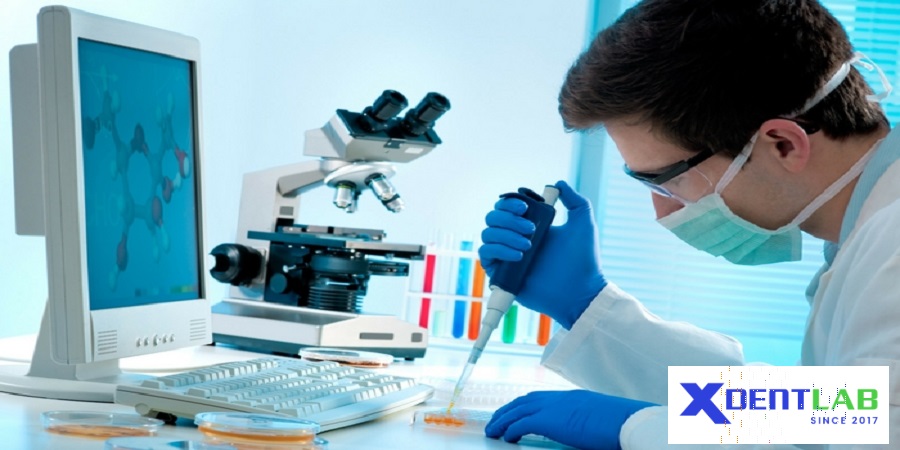
Lab to Lab Services district 6 Ho Chi Minh removabledenturelab.com represent a crucial component of modern scientific and medical research, fostering collaboration among laboratories for enhanced efficiency and accuracy. These services encompass a range of activities, including the sharing of specimens, data, and results between laboratories, thereby streamlining processes in research and diagnostics. In District 6 of Ho Chi Minh City, the adoption of lab to lab services is increasingly significant due to a growing need for specialized laboratory testing and the swift exchange of results.
Introduction to Lab to Lab Services
The rise of lab to lab services can be attributed to several factors. First, the complexity of modern diagnostics often requires expertise from multiple laboratories, making collaboration vital for accurate results. As research evolves and technology advances, the necessity for faster turnaround times and reliable outcomes intensifies. Specifically, in District 6, a diverse population and an emerging healthcare landscape necessitate efficient workflows that can only be achieved through the integration of lab to lab services.
One of the key benefits of implementing lab to lab services is the increased efficiency achieved through centralized processes. By sharing resources and knowledge, laboratories can minimize redundancy, reduce costs, and allocate effort towards more pressing research questions. This collaborative approach not only speeds up the testing process but also enhances the accuracy of scientific and medical results, as multiple specialized labs contribute their expertise to the analysis.
Additionally, these services provide a platform for continuous improvement in laboratory operations. By embracing shared databases and joint methodologies, Vietnam dental laboratory can refine their practices based on mutual feedback and data analysis. This cooperation fosters an environment where innovation thrives, leading to improved diagnostic capabilities and paths for advanced research initiatives in District 6 and beyond.
The Landscape of Laboratory Facilities in District 6, Ho Chi Minh City
District 6 of Ho Chi Minh City hosts a diverse array of laboratory facilities, accommodating the healthcare and research needs of its population. The landscape includes clinical laboratories, research centers, private labs, and specialized diagnostics facilities that serve various sectors. Clinical laboratories are pivotal in providing essential testing services for patients, ensuring accurate and timely results that facilitate effective medical care. These labs utilize advanced technologies for blood tests, urinalysis, and microbiological assessments, contributing significantly to the local healthcare system.
Research laboratories in District 6 play an important role in scientific advancement and innovation. They engage in a multitude of studies ranging from biomedical research to environmental science. Often, these facilities collaborate with universities and medical institutions, fostering an environment conducive to knowledge exchange and advanced research methodologies. Additionally, private laboratories have emerged to cater to specific needs from both individuals and businesses, offering tailored services that include genetic testing, food safety assessments, and pharmaceutical analysis.
A notable feature of the laboratory ecosystem in District 6 is the strong lab-to-lab service connections among various facilities. These collaborations enhance the overall quality and scope of services. For instance, certain laboratories have partnered with specialized research entities to streamline testing processes, thereby improving turnaround times for critical diagnostics. Infrastructure in the area is continually being improved to accommodate the latest technological advancements, ensuring that laboratory services can integrate state-of-the-art equipment and methodologies. The commitment to infrastructure development is evident in the modern facilities that not only meet but exceed regulatory standards, all while promoting a synergy that benefits the scientific and healthcare communities.
Related articles: Vietnam dental laboratory district 9 Ho Chi Minh
Challenges and Future Trends in Lab to Lab Services
The landscape of lab to lab services in District 6, Ho Chi Minh City, is marked by various challenges that can significantly impact the efficiency and reliability of service delivery. One of the predominant issues is the regulatory hurdles that laboratories must navigate. Compliance with local and international regulations is imperative for ensuring the quality and safety of lab results. However, varied interpretations of these regulations can lead to inconsistencies in operational processes, which undermines trust among laboratories and their clientele.
In tandem with regulatory challenges, varying quality standards across different labs can pose a significant barrier to effective service delivery. Laboratories may adopt different best practices, which creates discrepancies in the accuracy and reliability of test results. This issue is further compounded by logistical concerns, such as transportation delays and the lack of streamlined coordination between labs. Delays in sample collection and delivery can, therefore, lead to extended turnaround times that may compromise patient care and research timelines.
Looking ahead, several trends are anticipated to shape the future of lab to lab services in this region. Notably, technology and the adoption of digital platforms for lab data sharing are set to transform how labs Vietnam dental laboratories interact with one another. Enhanced digital communication can enable real-time sharing of results, leading to quicker decision-making processes. Furthermore, the potential for international collaboration presents an exciting opportunity for laboratories to pool resources and expertise, fostering innovation and improving overall outcomes.
As laboratories in District 6 seek to enhance their service delivery, it is recommended that they invest in technology-driven solutions and prioritize the establishment of robust partnerships. Focusing on these areas may not only mitigate existing challenges but also position them well to leverage future opportunities within the evolving landscape of lab to lab services.